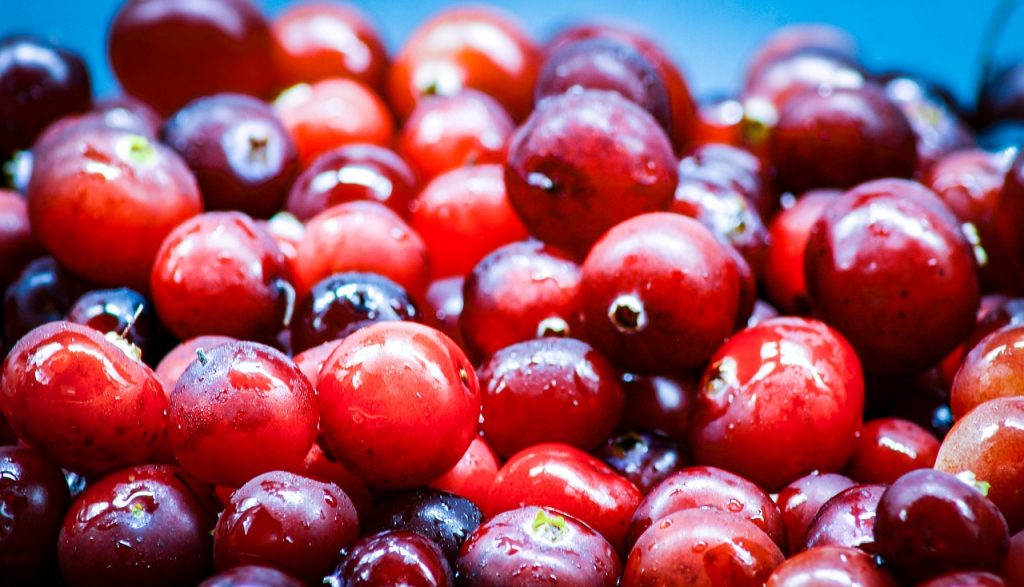13 Essential Foods for Optimal Women’s Urinary Health

The urinary system is responsible for removing waste and excess fluids from the body, maintaining a balance of electrolytes, and regulating blood pressure. In women, the urinary system is particularly vulnerable to conditions such as urinary tract infections (UTIs), bladder infections, and overactive bladder syndrome, largely due to the anatomical structure of the female body. These conditions can cause discomfort, pain, and, if untreated, lead to more serious health complications. Fortunately, a balanced diet rich in specific nutrients can help support urinary system health, reduce the risk of infections, and improve overall well-being.
Certain foods have proven benefits for improving kidney function, preventing urinary tract infections, and reducing inflammation in the bladder and urinary tract. Incorporating these foods into your diet can help maintain optimal urinary health, prevent common conditions, and improve your overall quality of life. Below, we explore the 13 best foods for women’s urinary system health and how they can offer long-term protection and support for the urinary tract.
1. Cranberries
When it comes to women’s urinary health, cranberries are the go-to food for preventing and treating urinary tract infections (UTIs). Cranberries contain proanthocyanidins, a type of antioxidant that prevents bacteria, particularly E. coli, from adhering to the walls of the urinary tract. This reduces the likelihood of bacterial infections taking hold and causing discomfort.
Cranberries also contain vitamin C, which strengthens the immune system and supports the body’s ability to fight infections. Drinking unsweetened cranberry juice or consuming dried cranberries regularly can help prevent recurring UTIs, which are more common in women due to their shorter urethra. Cranberries also acidify the urine, making the environment less favorable for bacterial growth, further protecting the urinary system from infection.
2. Watermelon
Watermelon is a hydrating fruit that is over 90% water, making it an excellent food for promoting urination and flushing out toxins from the urinary system. This hydration helps to reduce the risk of urinary tract infections and kidney stones by encouraging frequent urination, which prevents the buildup of harmful bacteria and minerals in the kidneys and bladder.
Watermelon is also rich in antioxidants, particularly lycopene, which helps reduce inflammation in the bladder and kidneys. This is especially beneficial for women who may experience inflammation in the urinary tract due to infections or other underlying conditions. Including watermelon in your diet, especially during warmer months, helps maintain kidney function, supports detoxification, and protects the urinary system from common complications.
3. Greek Yogurt
Greek yogurt is a rich source of probiotics, which are beneficial bacteria that help maintain a healthy balance of flora in the body, particularly in the gut and urinary tract. Probiotics help prevent the overgrowth of harmful bacteria, such as E. coli, which is responsible for many UTIs in women. By promoting a healthy balance of bacteria, probiotics in Greek yogurt can help reduce the risk of recurrent infections.
In addition to probiotics, Greek yogurt is also rich in calcium and vitamin D, which support overall immune health and protect the body against infections. Including Greek yogurt in your daily diet can strengthen your immune system and create a hostile environment for harmful bacteria, keeping your urinary tract healthy and infection-free.
4. Blueberries
Blueberries are another berry rich in antioxidants and anti-inflammatory compounds that support urinary system health. Like cranberries, blueberries contain proanthocyanidins, which help prevent bacteria from attaching to the lining of the urinary tract, thereby reducing the risk of UTIs. They also contain vitamin C, which boosts the immune system and protects the bladder and kidneys from oxidative stress.
Regular consumption of blueberries, whether fresh, frozen, or in smoothies, can help maintain a healthy urinary tract and protect against common infections. Their natural anti-inflammatory properties make them an excellent food for soothing irritation in the bladder and urinary tract, particularly for women prone to infections or inflammation.
5. Pumpkin Seeds
Pumpkin seeds are a powerhouse of nutrients that support bladder health and promote better urinary function. They are rich in zinc, an essential mineral that helps strengthen the bladder wall and reduce the risk of overactive bladder syndrome. Pumpkin seeds also contain omega-3 fatty acids, which help reduce inflammation in the urinary system, supporting overall urinary health.
For women, pumpkin seeds can be particularly beneficial for managing incontinence or bladder leakage, conditions that are more common in women after childbirth or during menopause. Eating a handful of pumpkin seeds regularly can help improve bladder control and reduce the risk of bladder-related issues.
6. Apples
Apples are a fiber-rich fruit that supports overall digestive health and, by extension, helps relieve pressure on the kidneys and bladder. The fiber in apples helps promote regular bowel movements, reducing constipation, which can put pressure on the bladder and lead to urinary issues. By keeping the digestive system functioning smoothly, apples support the proper elimination of waste and reduce the likelihood of urinary complications.
Apples also contain malic acid, which helps cleanse the kidneys and prevent the formation of kidney stones. Their high antioxidant content, including quercetin and vitamin C, helps reduce inflammation in the urinary tract, making them an excellent food for promoting kidney health and preventing infections.
7. Asparagus
Asparagus is a natural diuretic, meaning it encourages the production of urine, which helps flush out toxins and prevent the buildup of harmful bacteria in the urinary system. This diuretic effect is particularly useful for women who are prone to urinary tract infections or bladder infections, as it promotes frequent urination and keeps the urinary tract clear of pathogens.
In addition to its diuretic properties, asparagus contains compounds that help support kidney function and reduce the risk of kidney stones. It’s also rich in folate, a B-vitamin that supports overall cellular function and immune health, helping to protect the body against infections. Regular consumption of asparagus can help support kidney health, prevent infections, and promote overall urinary well-being.
8. Celery
Celery is a low-calorie vegetable that has powerful diuretic properties, making it an excellent food for promoting urinary health. Celery helps increase urine production, which encourages the removal of waste products and toxins from the body, reducing the risk of urinary infections and kidney stones. Celery’s high water content also keeps the body hydrated, supporting proper kidney function and reducing the risk of dehydration-related urinary issues.
The potassium and sodium in celery help regulate fluid balance in the body, preventing water retention and promoting a healthy balance of electrolytes. This balance is essential for maintaining healthy kidneys and preventing complications related to the urinary system. Incorporating celery into your diet can help support overall urinary function and prevent infections.
9. Parsley
Parsley is a potent natural diuretic that has been used for centuries to support kidney and bladder health. By increasing urine production, parsley helps the body flush out excess fluids and toxins, reducing the risk of kidney stones and UTIs. Parsley is also rich in vitamin C and antioxidants, which help boost the immune system and protect the urinary tract from oxidative stress and inflammation.
For women prone to UTIs or kidney-related issues, drinking parsley tea or adding fresh parsley to meals can help promote regular urination and prevent the buildup of harmful bacteria in the urinary system. Its detoxifying properties make parsley an essential food for supporting kidney function and maintaining long-term urinary health.
10. Dandelion Greens
Dandelion greens are a powerful detoxifying herb that acts as a natural diuretic, helping increase urine flow and flush out toxins from the body. Dandelion greens are rich in vitamin C, vitamin A, and potassium, all of which support kidney function and help prevent the formation of kidney stones. Their diuretic properties make them particularly useful for women who experience water retention or bladder discomfort.
In addition to their detoxifying effects, dandelion greens contain antioxidants that help reduce inflammation in the urinary tract, protecting the kidneys and bladder from damage. Incorporating dandelion tea or fresh greens into your diet can support a healthy urinary system and reduce the risk of infections and other complications.
11. Garlic
Garlic is known for its powerful antimicrobial and anti-inflammatory properties, making it an excellent food for protecting the urinary system from infections. Garlic contains a compound called allicin, which helps fight off bacteria, including E. coli, that can cause UTIs. By reducing bacterial growth, garlic helps prevent infections and supports the overall health of the urinary tract.
For women who frequently experience UTIs, adding garlic to meals can provide natural protection against infections. Garlic’s anti-inflammatory properties also help reduce swelling and irritation in the bladder, offering relief to those who experience bladder discomfort or overactive bladder syndrome.
12. Lemon
Lemon is highly beneficial for urinary health due to its ability to increase citrate levels in the urine. Citrate helps prevent the formation of kidney stones by binding to calcium and preventing it from crystallizing in the kidneys. Drinking lemon water regularly can help dissolve small kidney stones and reduce the risk of developing new ones, making it an essential food for maintaining kidney health.
In addition to its stone-preventing properties, lemon also has antimicrobial effects that help reduce the risk of UTIs by inhibiting the growth of harmful bacteria in the urinary tract. Its high vitamin C content boosts the immune system, further protecting the body from infections.
13. Cherries
Cherries are rich in antioxidants and anti-inflammatory compounds, which help reduce inflammation in the urinary system and protect the kidneys from oxidative damage. The high levels of vitamin C in cherries support immune function and help prevent infections in the bladder and urinary tract. Regular consumption of cherries can help reduce the risk of developing UTIs, kidney stones, and other urinary issues.
In addition to their antioxidant content, cherries also help promote proper hydration, ensuring that the urinary system is regularly flushed and free from harmful bacteria. Eating fresh cherries or drinking cherry juice regularly can provide long-term protection for the urinary tract and help maintain kidney health.
Maintaining a healthy urinary system is especially important for women, who are more prone to UTIs, bladder infections, and kidney-related issues due to their anatomy. By incorporating these 13 foods—such as cranberries, blueberries, Greek yogurt, and parsley—into your diet, you can help protect your kidneys, bladder, and overall urinary health.
These foods offer a variety of benefits, from preventing infections and reducing inflammation to supporting kidney detoxification and improving bladder control. Whether you’re looking to prevent recurrent UTIs, support kidney health, or maintain a healthy urinary system, a diet rich in these nutrient-dense foods can provide long-term protection and promote overall well-being.

